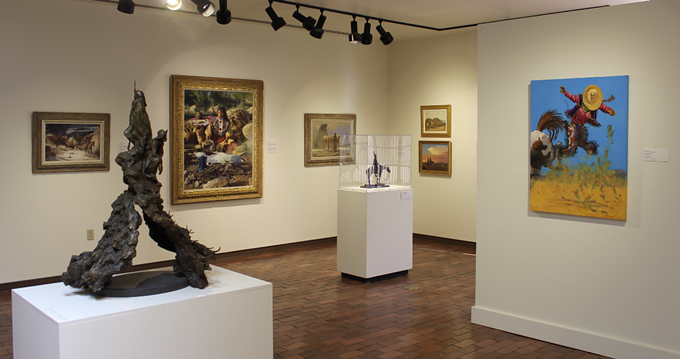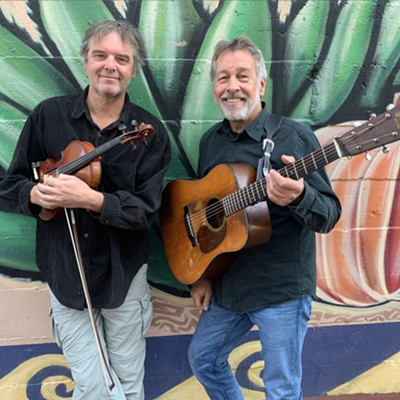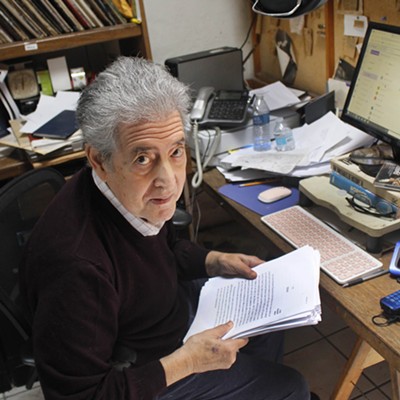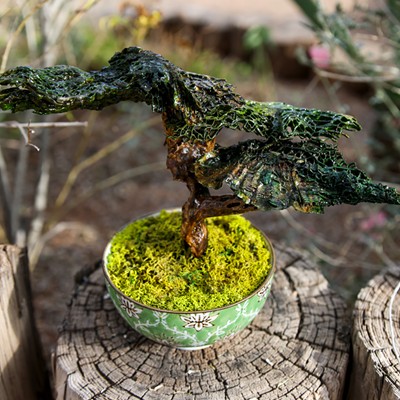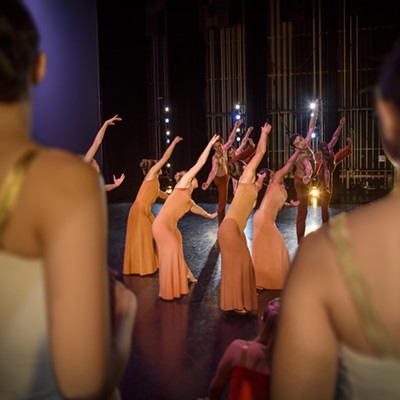The arts industry employed more than 90,000 Arizonans and added more than $9 billion to the state's economy last year, according to the Bureau of Economic Analysis and National Endowment for the Arts. But like many industries, the arts sector—in all its various genres—is under assault by the COVID-19 pandemic; galleries are shuttered, concert halls are closed and theatres are quiet.
While those billions in economic impact aren't completely stopped, the Arizona Commission on the Arts says that artists and contract workers in particular are facing unprecedented loss of income due to widespread cancelation of events, residencies and production contracts. Luckily, multiple organizations both local and national are announcing special coronavirus relief funds and opportunities for affected artists. The artists themselves are also finding new ways of spreading their art and maintaining some semblance of their past employment during these unprecedented times.
On Monday, April 6, the Arts Foundation for Tucson and Southern Arizona announced they would be distributing $50,000 in emergency funding to the local arts community via two new grants: The Pivot Grant and the Emergency Relief Fund.
The Pivot Grant will fund "alternative methods" of sharing art in compliance with pandemic guidelines set up by the Centers for Disease Control. The grants will range from $500 to $1,000 to individual artists and $1,000 to $2,000 for nonprofit arts organizations sharing art in a virtual, digital or socially distant manner.
"In crafting this call, I especially didn't want to point to specific examples of message or art, because I didn't want it to seem exclusive to one type of method. I wanted this call to be open to the type of innovation we're seeing across the field right now," said Arts Foundation grants manager Natalia Gabrielsen. "We're open to whatever kind of method folks are using right now to get their artwork out."
The Emergency Relief Fund, a collaborative fund between the Arizona Community Foundation and Arts Foundation, will provide emergency support for work artists, teaching artists or other arts contract-workers who have experienced canceled events, residencies or contracts.
According to Gabrielsen, the most money the Arts Foundation previously put into a single grant, excluding their annual general operating support grant, is the $24,000 new works artist grant. This funding will result in anywhere from 10 to 50 grants for Pima County artists, and is expected to distribute by mid-May after a committee examines the online applications.
However, Arts Foundation board president Eva Romero admits that $50,000 is "not even close to enough" to ease the burden of COVID-19 on Tucson's arts community.
"The demand is way outweighing the supply... But it's what we can do right now," Romero said. "I really want to encourage anyone who can to give to either of the funds, or some of the other artist relief funds, because we need art not just in the way we used to think about it, but in the way it's becoming essential now, and the way artists contribute to problem solving in a totally different way."
The pandemic is stressing arts funding across the state. For example, the Arizona Commission on the Arts established a dedicated Emergency Relief Fund for Arizona Artists and Arts Professionals to provide grants of $500 to $1,500. The fund was seeded with $130,000 from the Arizona Community Foundation and another $25,000 from other partners. This funding was anticipated to provide approximately 150 grants. The Commission received more than 500 applications within the first day of opening the Fund, and submissions are now closed.
"We know that these grants are unlikely to cover the full scope of lost income you may be experiencing. Please know that this is but one strategy being explored and implemented," the Commission wrote when announcing the fund.
Southern Arizona Arts and Cultural Alliance executive director Kate Marquez says that because SAACA is not a registered funding organization, they are not currently establishing any funds or grants for local artists. However, they are still supporting the local arts community by creating an extensive list for artists' resources on their website.
SAACA is also preparing their CATALYST Maker Space to live-stream artistic content and educational classes. They are developing a virtual art gallery, where community members will be able to submit visual art, music, film, dance, new recipes, and anything else inspired by the current events.
For musicians specifically, Tucson Symphony Orchestra artistic manager Benjamin Nisbet created the Tucson Musicians COVID19 Relief fund on GoFundMe. In only three weeks, the fund reached its $25,000 goal thanks to more than 300 donors, and continues to build a revenue pool for local musicians who could use some money for "food, medicine, bills, childcare and other essentials."
The Phoenix-based Labor's Community Service Agency has also established a fund for workers in the entertainment industry, such as at theaters, and events venues.
On a national level, the nonprofit Creative Capital—which was founded in the '90s to support artists after funding cuts from the National Endowment for the Arts—is offering financial resources for artists affected by the pandemic.
"There's no way we're going to get through this without art; we need it right now," Romero said. "Every time I talk to an individual artist or someone who represents an arts organization, they talk to me about the important social issues they're addressing with their work. Artists are doing very creative problem solving at essential levels within the community... and we wanted to stimulate that even further."

